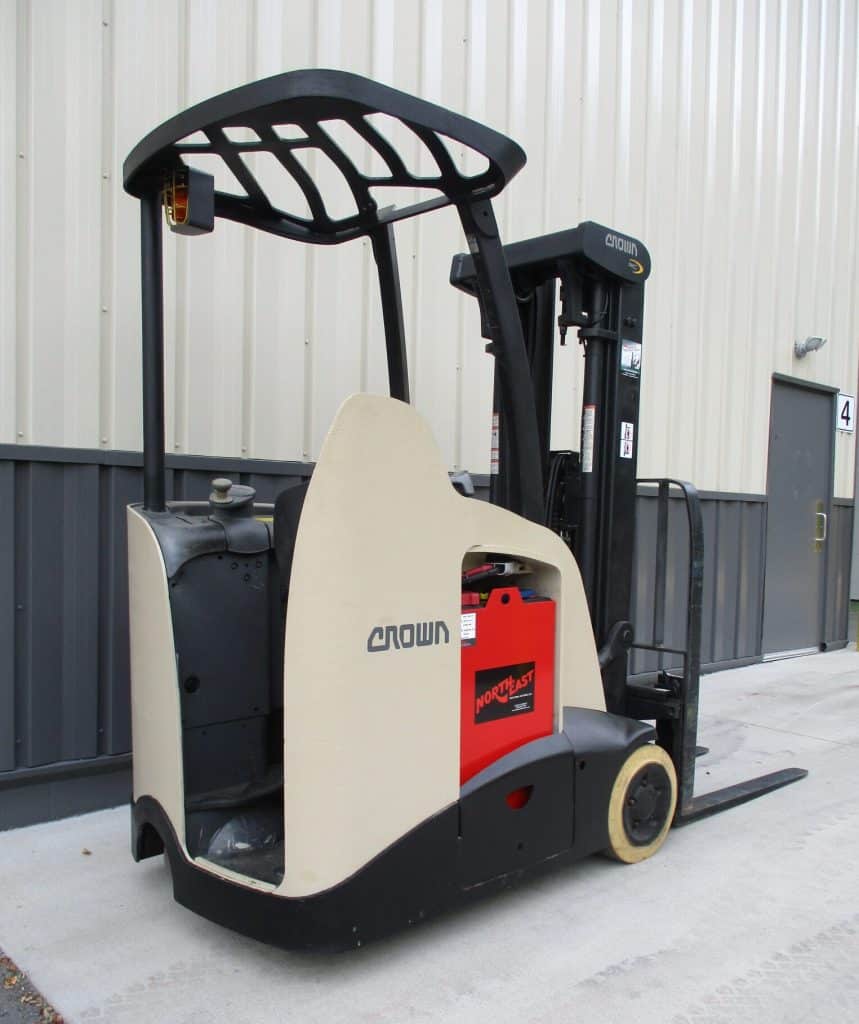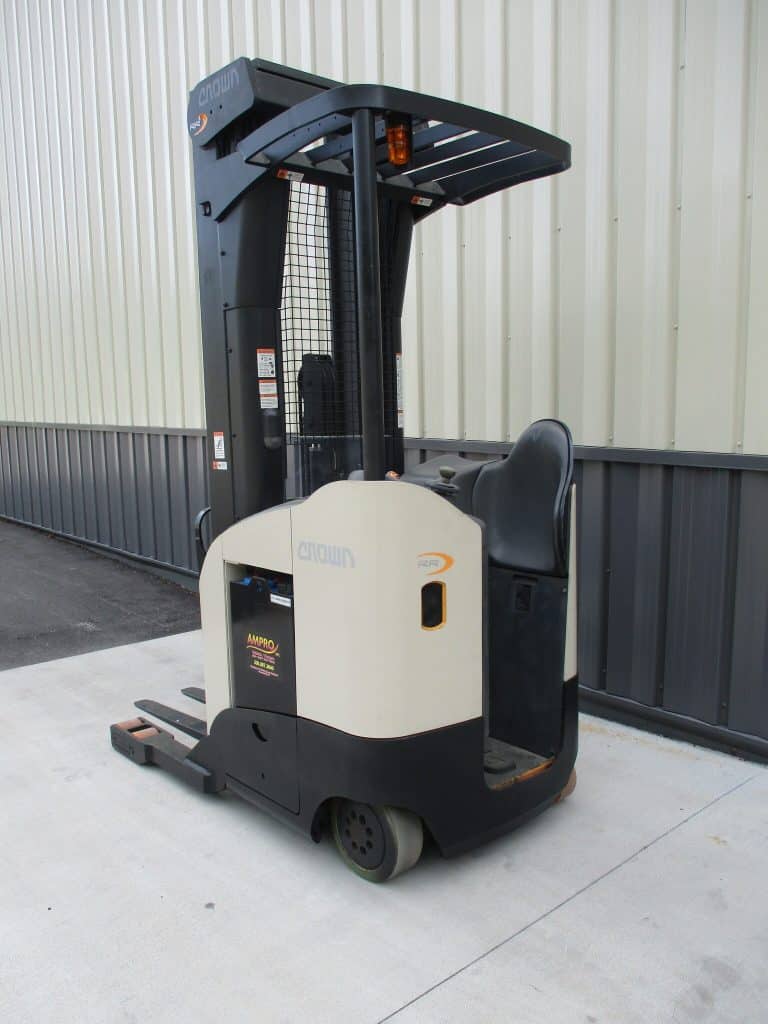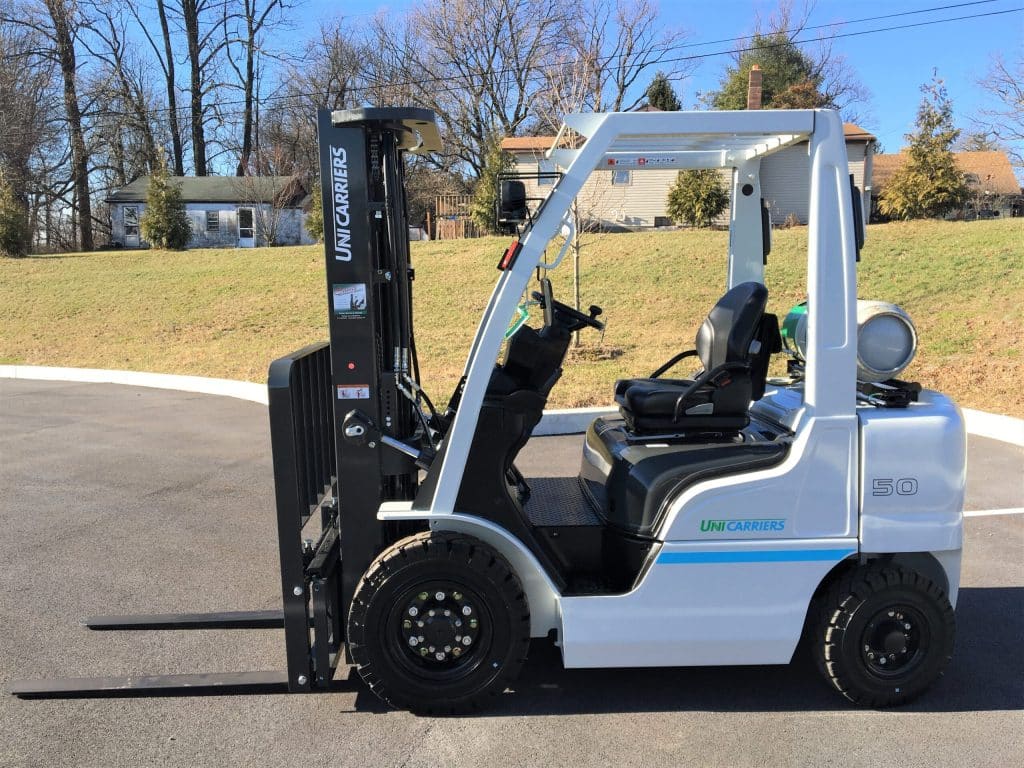When choosing a forklift for a specific job, it’s essential to know the differences in the types of forklifts. Forklifts are assigned to one of seven forklift classifications. Each one is different and based on the type of fuel used, features, and use of the machinery.
The best forklift classification for you depends on what job needs completing, where you’ll use the forklift, and available space. No matter the job, you can trust Sam’s Mechanical to have the right forklift for you.
What Are the Seven Forklift Classifications?
Forklifts are categorized into seven different classes, as explained in this OSHA training.
Class number one is Electric Motor Rider Trucks, like the pictured Crown model available at Sam’s Mechanical. These types of forklifts generally have a load capacity of greater than 3,000 pounds. Class one forklifts are powered by an electric motor and use an industrial battery, making them ideal where fuel fumes are a concern. The operator can use an electric motor rider forklift either standing up or sitting down, depending on the type of model you choose. These forklifts are an excellent choice for unloading tractor-trailers and pallet handling.
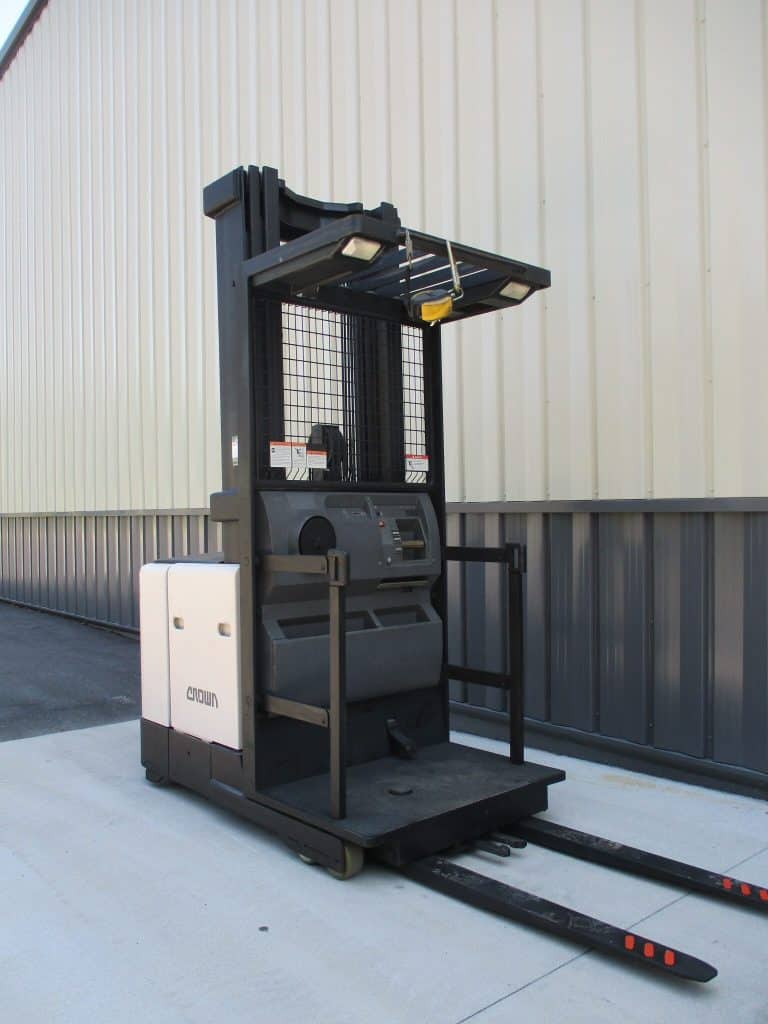
Class number two is Electric Motor Narrow Aisle Trucks. This type of forklift is similar to class number one but is more narrow and designed to fit in warehouses with narrow aisles. Standard forklifts in class number two are reach trucks and order pickers. They’re an excellent choice to move inventory and handle pallets in an indoor environment.
The third forklift classification is Electric Motor Hand Trucks or Hand/Rider Trucks. This forklift type only lifts a load a few inches off the ground and is the right choice for unloading delivery trucks, small warehouses, and pallets’ short distance moving. Like the pictured Unicarriers models from Sam’s Mechanical, these can either be walk-behind (walkies) or riders. It has a load capacity of 2,000 to 8,000 pounds.
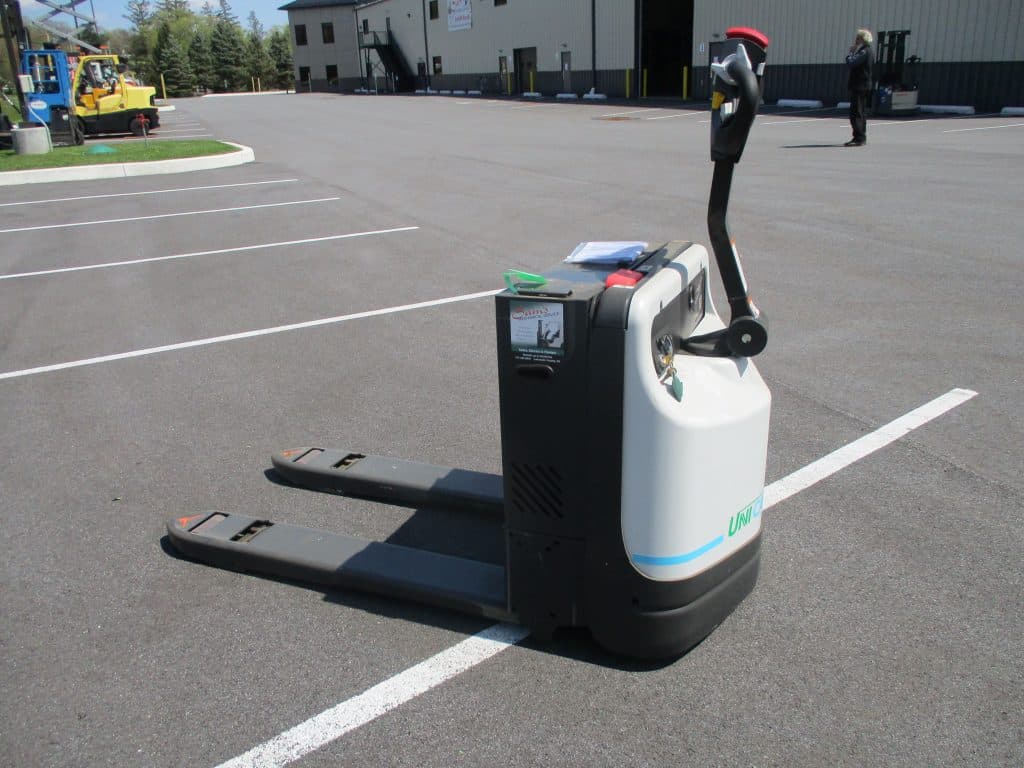
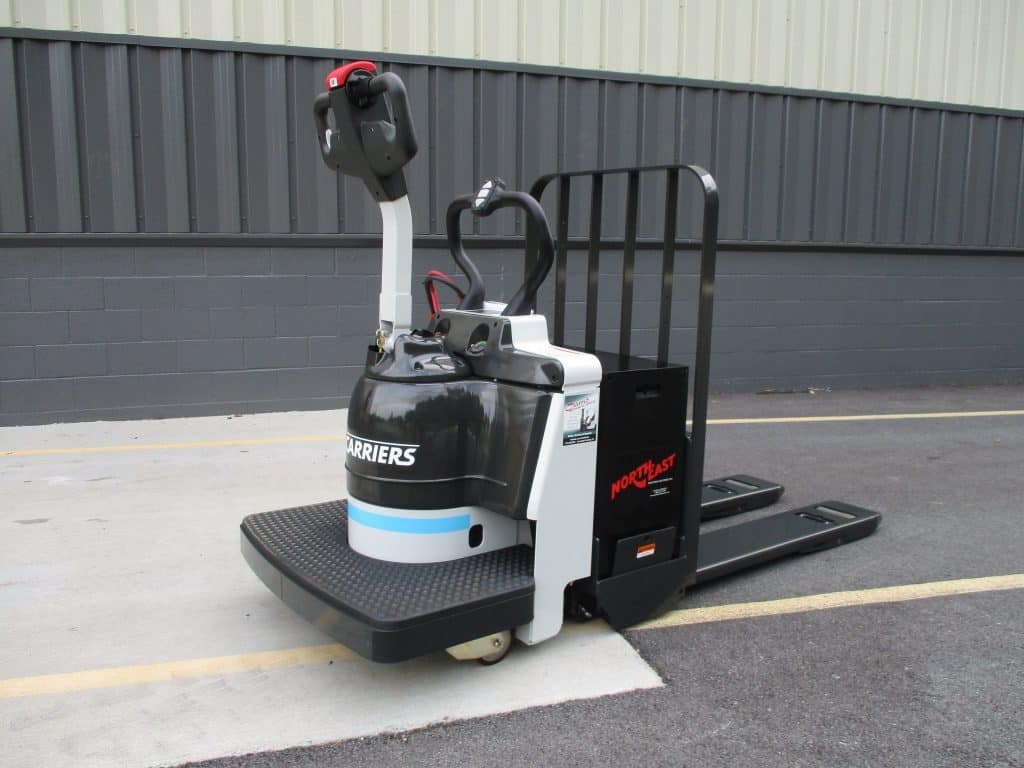
Forklift classification number four is the Internal Combustion Engine Trucks (ICE) with Solid or Cushioned Tires. Designed for indoor spaces with smooth floors, these forklift trucks use liquid propane, regular gasoline, or diesel fuel to power the equipment. Their load capacity is typically heavier than the first three classes, ranging from 3,000 pounds and up. These forklifts would be the right choice for a warehouse with limited space or time, as they do not require a charging station. Unlike the first three classes, you don’t need to wait for the batteries to charge to use class four forklifts.
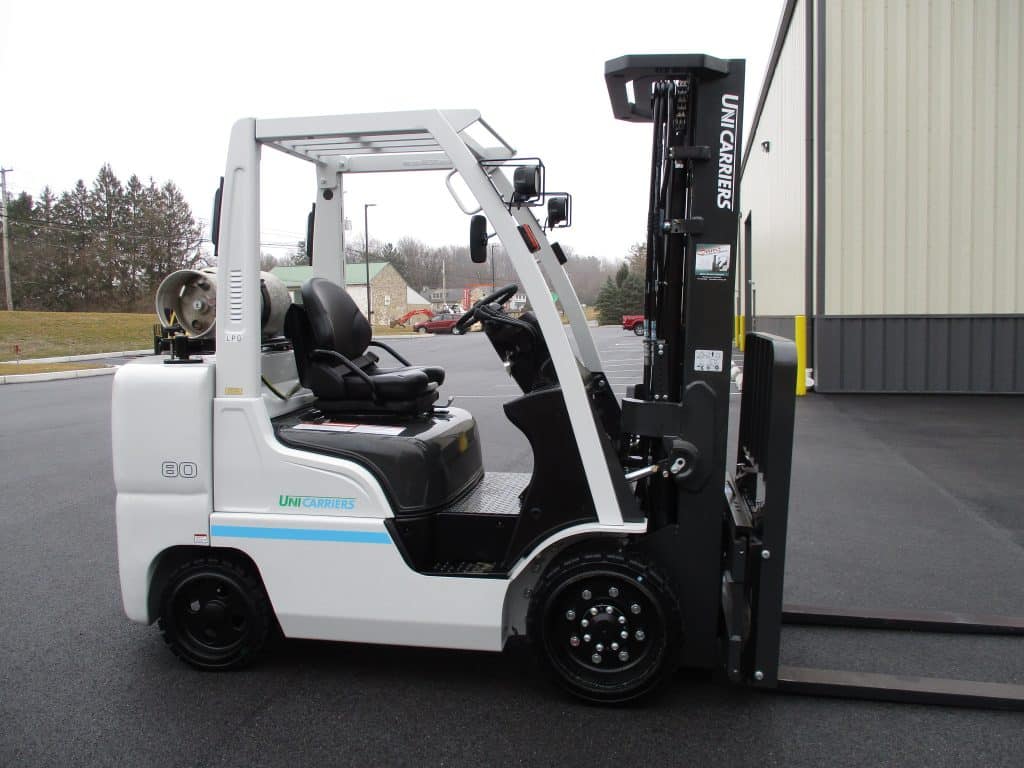
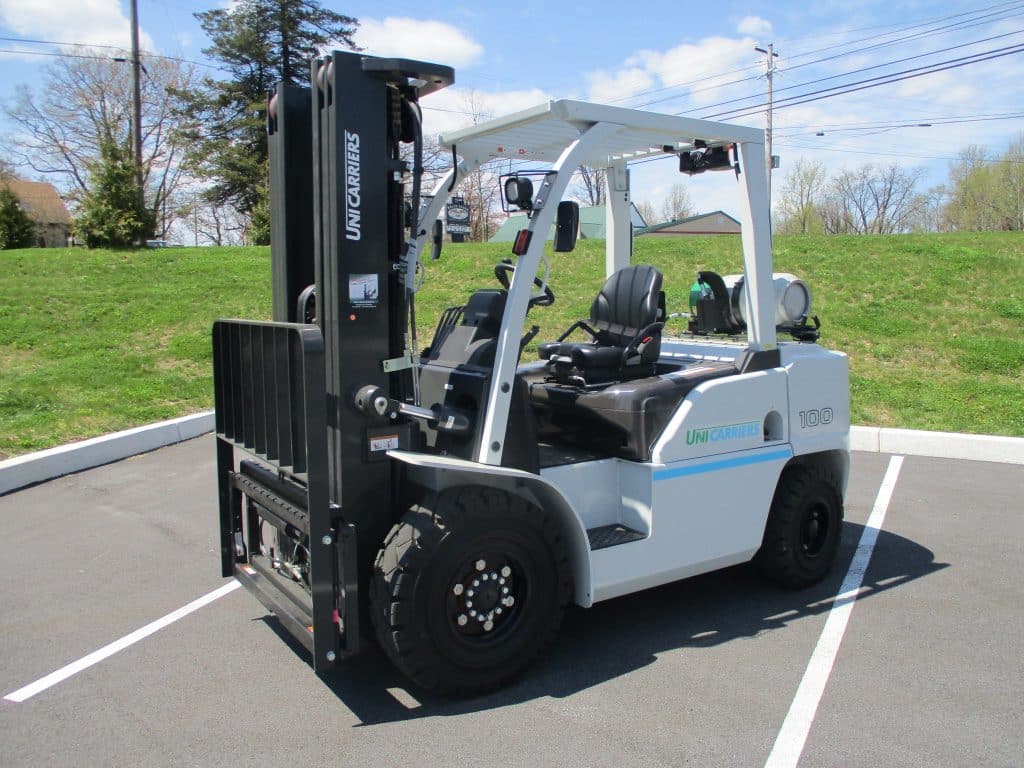
The fifth forklift class is the Internal Combustion Engine Trucks with Pneumatic Tires. It’s similar to class number four, but with different tires. The pneumatic tires are designed for outdoor use or rough terrain. They run on liquid propane, gas, or diesel. A class five forklift’s load capacity is 3,000 pounds and up, making the ideal use for loading or unloading large containers. The pictured Unicarriers forklifts are available here at Sam’s Mechanical.
Forklift classification number six is the Electric and Internal Combustion Engine Tractors. These trucks are tow tractors and tuggers, and typically have a load capacity of 3,000 to 6,000 pounds. Their engines can be electric or fueled by LP gas, regular gasoline, or diesel, allowing this forklift to be operated indoors or outdoors depending on your needs. Operators use class six forklifts for towing a load.
Finally, the seventh class of forklifts is the Rough Terrain Forklift Trucks. With a load capacity of 3,000 pounds and up, class seven forklifts require special training to operate. You’ll frequently see these forklifts in lumber yards and construction sites. They have massive tires designed for rough terrain and often have a telescoping mast. Don’t use a class seven forklift for material handling.
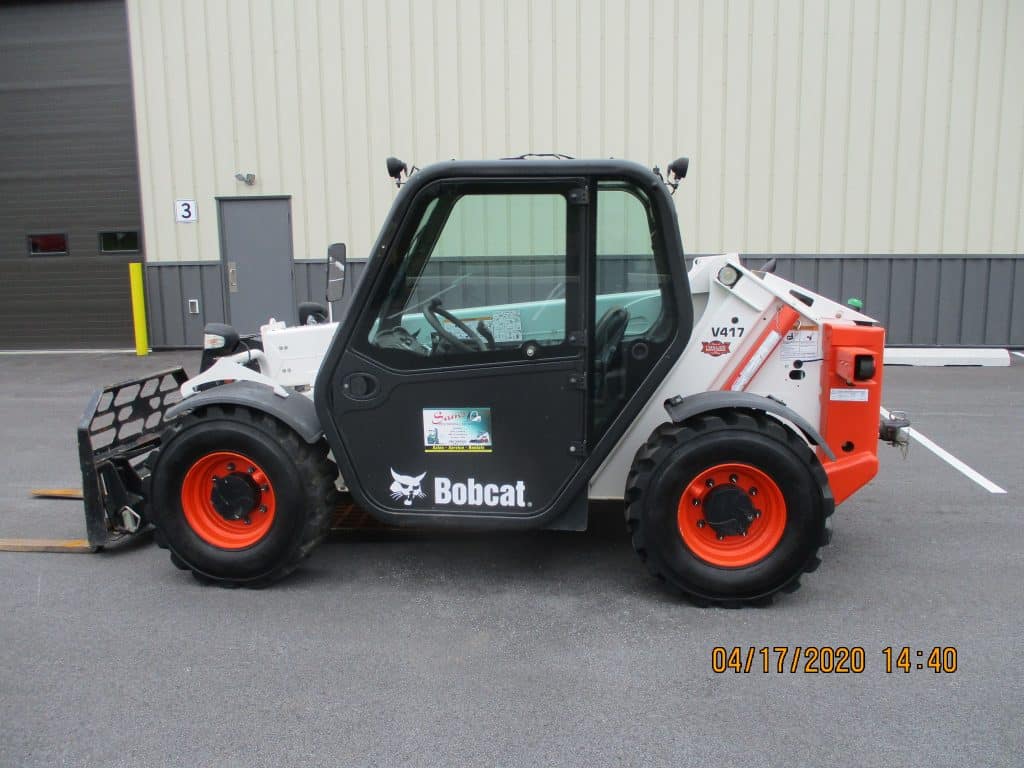
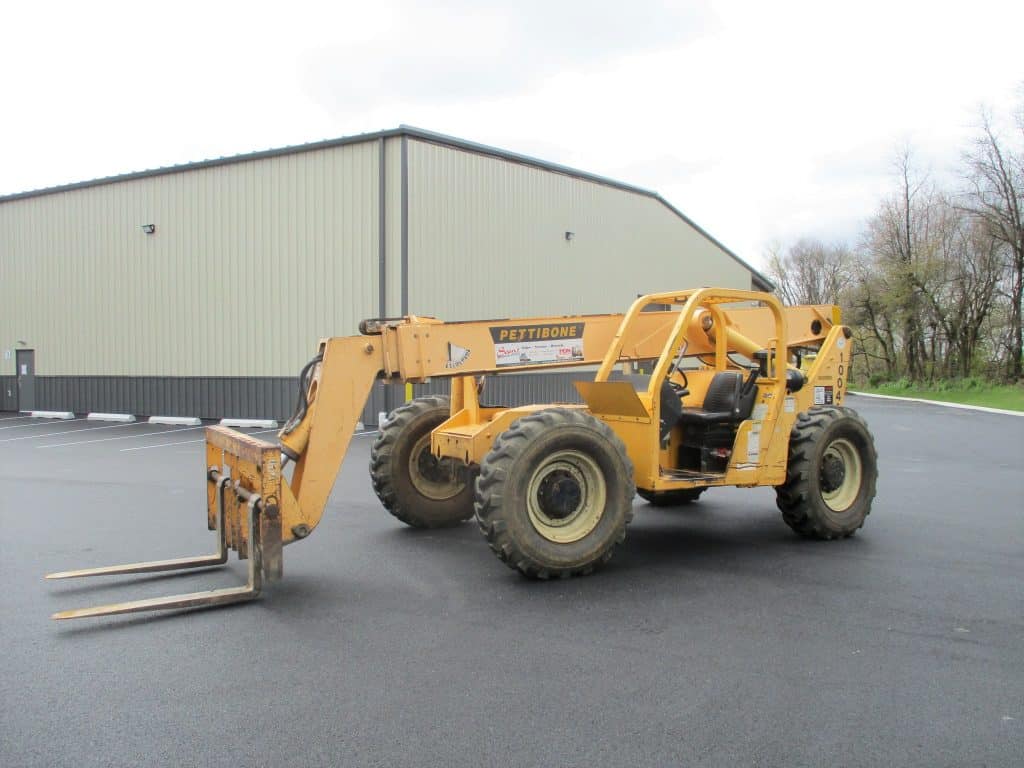
How Do I Decide Which Forklift Classification is Right for Me?
While it can seem a little overwhelming at first, choosing the right forklift classification for you can be based on a few factors. These factors include:
- Environment – Will you need a forklift indoors? You’ll want to choose a forklift from classes one through four—or class six with solid or cushioned tires. If you need a forklift for outdoor work, consider one from classes five through seven or one with pneumatic tires.
- Load capacity – What will you be lifting with your forklift? For lighter loads, consider a class three or class six forklift. Heavier loads will require something more substantial, like class four, five, or seven forklifts. Either way, ensure the forklift you choose can handle the load you need to move.
- Use – How will you be using your forklift? For warehouse inventory management, you may need several different types of forklifts for multiple jobs. For example, you may need some simple motor hand trucks in class three to move pallets short distances, but an electric motor rider truck for placing pallets in racking. Or, if you’ll be at a lumberyard or construction site moving materials, you will need a class seven. Sam’s Mechanical can help you decide on the right forklift for the job you have. Contact us today for assistance.
- Space – In what kind of space will you be using your forklift? Does your warehouse have narrow aisles? If so, you’ll need a class two, electric motor narrow aisle truck, to do the job. Do you have space for a charging station? If not, you’ll want to consider a forklift with an internal combustion engine. Are fumes an air quality a concern? If so, you’ll want to choose a forklift with an electric motor.
- Frequency of use – Is the use of a forklift an ongoing need, or do you need a forklift for a limited time? Purchasing a forklift outright may make more sense if you have a constant need, like moving inventory in a warehouse, daily loading or unloading tractor-trailers, or picking orders. However, if you only need a forklift for a limited amount of time, or require the use of a forklift for a particular job, consider renting a forklift. Sam’s Mechanical can help you with forklift rentals as well. To get started, check out what you need to know before renting a forklift for a day.
Trust Sam’s Mechanical to Help You Find the Best Forklifts
Ultimately, choosing the right forklift classification for the job is extremely important. Contact Sam’s Mechanical today to get our expertise in selecting the right forklift you need to get the job done safely and quickly.
We are the One-Stop Forklift Shop and can assist you with forklift purchases, rentals, and accessories. Our expert staff is awaiting your call to assist you in choosing the best forklift classification for you. We also have a full line of pallet racking and cantilever racking.
